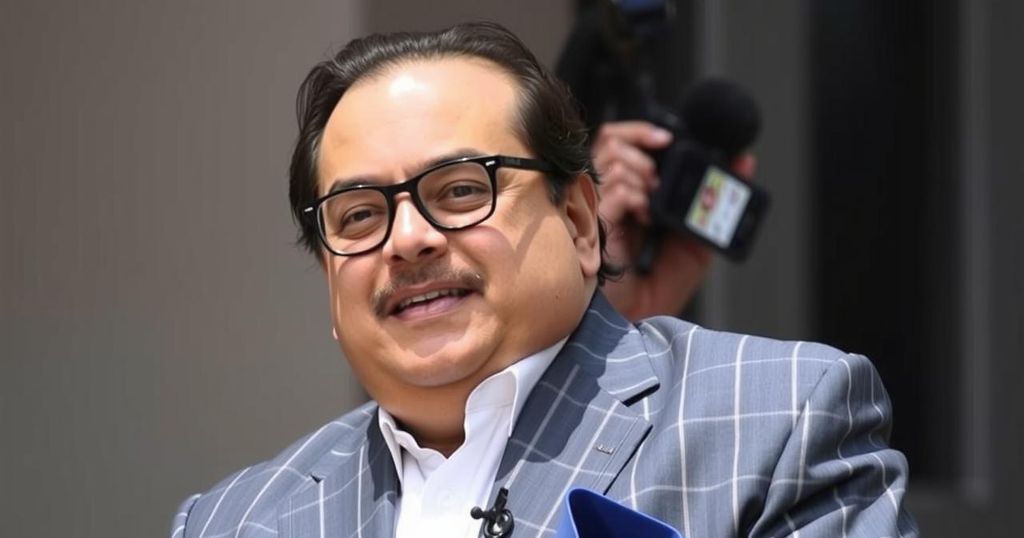Trump’s Return: Implications for U.S. Foreign Policy in the Middle East
Donald Trump’s expected return to the presidency could reshape U.S. foreign policy in the Middle East. Diplomat Robert Ford outlines challenges in negotiating peace amidst ongoing conflicts in Gaza and Lebanon. Limited Republican support for a two-state solution may hinder U.S. pressure on Israel. Trump’s aversion to foreign aid and the influence of Gulf leaders could impact military assistance and diplomatic outcomes.
Donald Trump’s anticipated return to the presidency following his solid victory in the upcoming Nov. 5 election is poised to significantly alter United States foreign policy, particularly in the Middle East. As conflicts in Gaza and Lebanon persist, the implications of Trump’s administration are being closely observed by regional stakeholders. Veteran diplomat Robert Ford shared insights regarding the likely direction of U.S. foreign policy under a new Republican administration and highlighted the complexities involved in these geopolitical issues. Ford emphasized that while Trump has expressed a desire to negotiate peace in various international conflicts, the realities on the ground present significant challenges. “I do not think he can end a war in a week,” he remarked, referencing the ongoing violence stemming from the Hamas-led attack on Israel and subsequent Israeli military actions. Within the Republican Party, there is minimal support for pursuing a two-state solution to resolve the Israeli-Palestinian conflict, which indicates that pressure on Israel regarding this matter is unlikely. Furthermore, Ford noted that the current Arab solidarity over the situation in Gaza may encourage regional leaders, notably from the Gulf states, to advocate for Palestinian statehood more vigorously. He mentioned, “The only people who will have influence with President Trump personally… are leaders in the Gulf,” suggesting that their priorities could potentially sway U.S. policy. The complex relationship between the U.S. and Israel, particularly concerning military aid, is also under scrutiny. Ford implies that although military support for Israel is a longstanding U.S. policy, Trump’s aversion to foreign aid may impact the future of American assistance. “I do think that President Trump does not particularly like foreign aid,” he said, indicating potential changes in the levels of support provided. Conflict continues on multiple fronts in the region, with significant casualties reported in both Gaza and Lebanon. As for Lebanon, Ford predicts that the U.S. might engage in discussions to seek resolutions to the ongoing war against Hezbollah, a move he believes is plausible due to personal connections within the Trump family. In contrast, U.S. interests in Syria may lead to a withdrawal of American troops as the new administration prioritizes other geopolitical issues. On the matter of Iran, Ford anticipates a return to a maximum pressure strategy against the regime, reflecting a divide within the future administration concerning military intervention. As the international landscape evolves, it is evident that Trump’s administration will face intricate decisions regarding longstanding conflicts and alliances in the Middle East, influenced by regional leaders and domestic political dynamics.
This article discusses the expected implications of Donald Trump’s return to the presidency on U.S. foreign policy in the Middle East, particularly regarding the ongoing conflicts in Gaza and Lebanon. Insight from Robert Ford, a seasoned diplomat with extensive experience in Arab affairs, provides context to the complexities involved in potential U.S. diplomatic efforts, military aid to Israel, and strategies towards Iran and other Middle Eastern nations. As regional tensions persist, there is a growing expectation of a shift in U.S. policy that may or may not align with Trump’s prior commitments.
In summary, Donald Trump’s anticipated return to the White House is likely to lead to significant changes in U.S. foreign policy, especially concerning the Middle East. Diplomatic efforts regarding the Israeli-Palestinian conflict may continue to be stifled by party politics, while aid policies could shift in response to Trump’s views on foreign expenditure. Regional actors, particularly Gulf leaders, might play a crucial role in influencing U.S. positions. As conflicts linger, future U.S. engagement with countries like Lebanon and Iran will be closely watched as the administration seeks to navigate these intricate relationships.
Original Source: www.arabnews.com




Post Comment